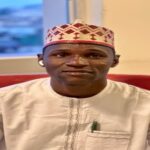
Ngige Reveals Political Pressure Behind His 2006 Removal as Anambra Governor
Former Anambra State Governor and ex-Minister of Labour and Employment, Senator Chris Ngige, has shed new light on the circumstances that led to his controversial removal from office in 2006, claiming he was ousted for refusing to bow to political pressure to appoint Chris Uba as his deputy.
Speaking during a recent interview in Abuja, Ngige said his refusal to accept terms imposed by political godfathers at the time ultimately led to his exit. He described his removal as part of a larger divine script, asserting he has no regrets.
“I was given conditions—clear ones—and I declined,” Ngige said. “That refusal sealed my fate.”
He recounted a specific encounter with the late Senator Ibrahim Mantu, who, acting on behalf of powerful political interests, allegedly approached him with a list of demands. Chief among them was the insistence that Chris Uba, a politically influential figure in the region, be made deputy governor.
“I told Mantu to tell whoever sent him that I wouldn’t agree,” Ngige said. “Later, he suggested we meet the person directly. During that meeting, I was told plainly: Make Chris Uba your deputy.”
Ngige said he had two major reasons for rejecting the proposal. First, he feared that granting Uba constitutional immunity could endanger his life. Second, he believed that yielding to such pressure would ignite public backlash from the people of Anambra.
“The people of Anambra had already seen the chaos these individuals brought to the state. They watched as the House of Assembly, the governor’s office, the Broadcasting Service, and several other institutions were set ablaze,” he said. “And the perpetrators didn’t even hide—they were proud of what they did. So how could I, in good conscience, hand over power to them?”
Despite the political cost, Ngige insisted that standing his ground was the right decision.
“You can take the seat. It’s okay. But I serve a higher authority—God is ultimately in charge.”
A devout Catholic, Ngige said he accepted his removal as part of God’s plan. “When the court removed me, someone came to me crying, saying he would’ve taken his own life if it happened to him. I told him, ‘I can get you a rope.’ This wasn’t tragedy—it was divine design.”
Ngige also revealed that he deliberately chose not to appeal the ruling that removed him from office, explaining that doing so would have plunged Anambra into further unrest.
“I wasn’t born into power,” he said. “I was born Nwabueze Ngige, son of a carpenter who worked as a foreman at the Public Works Department. Governorship was never my identity.”
Turning “Bad Boys” into Security Assets
Reflecting on his time in office, Ngige spoke about his unconventional but effective approach to addressing insecurity—by recruiting local “bad boys” into government-sanctioned vigilante groups.
“We needed security. Real security, not just uniforms,” he explained. “That’s why I proposed the Anambra Vigilante Services (AVS) Bill to the House of Assembly in 2003. They passed it. We started working closely. We built trust.”
Ngige revealed that communities were asked to provide names of both trustworthy individuals and known troublemakers. Surprisingly, some of the latter were also offered opportunities—under strict supervision.
“We told them, ‘Yes, you’ve caused problems. But here’s a chance. Help us identify others like you. Help us clean up the state.’ And they did,” he said.
These recruits were paid ₦30,000 per month—a substantial amount at the time. They were also provided with meals, transport, and mobile phone recharge cards.
“They felt a sense of responsibility, and they protected the state fiercely. Even when my police protection was withdrawn, these vigilantes stepped in to keep me safe,” Ngige recounted. “They would go as far as Aba, tracking down criminals who had fled Anambra.”
Ngige criticized how many state leaders misuse security votes today, calling them out for treating public safety funds as personal allowances.
“Security funds are not pocket money. They’re not for buying houses abroad. They’re meant to protect people,” he said bluntly.
